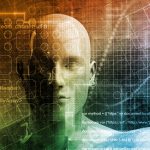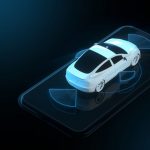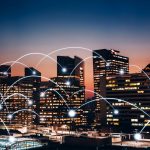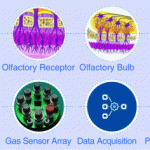Security threats to smart devices are not just from hacking, but also from a lack of control over data access. The separation of security from convenience makes it difficult for the average user to determine how secure a smart device is.



Security threats to smart devices are not just from hacking, but also from a lack of control over data access. The separation of security from convenience makes it difficult for the average user to determine how secure a smart device is.

Mega-platforms have, with the addition of one extra ingredient, combined lock-in and loyalty to create a grave, and perhaps unexpected, consequence. The extra ingredient is psychology; and the unexpected consequence is what might be called digital dependence.

Democracy itself is under (yet another) threat from deepfake videos … deepfake videos could be used to create compromising material of politicians: for example, the digitally-altered video2 of U.S. House of Representatives speaker Nancy Pelosi appearing to slur drunkenly was viewed millions of times and tweeted by the U.S. President, and although the video is demonstrably a hoax, the tweet remains undeleted.

Contemporary and emerging digital technologies are leading us to question the ways in which humans interact with machines and with complex socio-technical systems. The new dynamics of technology and human interaction will inevitably exert pressure on existing ethical frameworks and regulatory bodies.

As technology pervades all aspects of our existence, and Artificial Intelligence and machine learning systems become commonplace, a new era of human-computer interaction is emerging that will involve directing our focus beyond traditional approaches, to span other intricate interactions with computer-based systems.

It is important to define autonomy in technology, which is not the same as automation. Automated systems operate by clear repeatable rules based on unambiguous sensed data. Autonomous systems take in data about the unstructured world around them, process that data to generate information, and generate alternatives and make decisions in the face of uncertainty.

Technology for Big Data, and its brother-in-arms Machine Learning, is at the root of, and is the facilitator of, deliberate string-pulling design choices. These design choices are made by people, and so the question actually becomes, do the design choices enabled by Big Data and Machine Learning have the capacity to alter, diminish and perhaps actually “destroy” what it means to be fundamentally human.

Why would anyone own, or even need to own, a driverless car, if they do not get to drive it? Which in turn begs the question, if the central tenet of the personal car ownership model (i.e., ownership) no longer holds, then what is the replacement business model?

It is essential not only to estimate the sales potential of driverless cars, but also to debate how they will affect the society and cities’ livability.

Meeting traveler’s expectations, and properly exploiting available transport resources, is becoming a more and more complex task.
The role of driverless cars in future transport systems remains debatable, in terms of their potential to replace other transport modes or have a novel, unique, and complementary functionality.

In the age of driverless cars, rail — as a means of transportation that takes many people from one central station to another central station — has lost justification for its existence.

I am Alba Victoria
A biopsychologist highly interested in conservation
Dedicated to engaging science communication
Who is simply trying to find more sustainable ways
To support our current and future generations

Smart Cities demand new strategies and forms of control. The traditional model of public regulation is challenged by a renewed relationship between technology, government, and society. We highlight the difficulties and possible solutions for regulation in the context of a Smart City, provided by the largest city in Brazil: São Paulo.

U.K. democracy is out of date. It isn’t built to deal with digital tools that have unprecedented potential to manipulate the public.

Innovative Information and Communication Technologies play an important role in e-governance and digital democracy. There is unprecedented opportunity for community collective choice, whereby citizens who are affected by a set of governing rules can help to select policy options and rank spending priorities.

Politics required dialogue, deliberation, negotiation, and compromise. But now there is a dispute over the facts themselves.

Will AI be our biggest ever advance — or the biggest threat? The real danger of AI lies not in sudden apocalypse, but in the gradual degradation and disappearance of what make human experience and existence meaningful.

Given the current lack of regulation, there is nothing in principle to stop unscrupulous organizations from deploying surreptitious robotic olfaction.

As VR has hit the mainstream, much debate has arisen over its ethical complexities. Traditional moral responsibilities do not always translate to the digital world. One aspect we argue is essential to ethical responsibility for virtual reality is that VR solutions must integrate ethical analysis into the design process, and practice dissemination of best practices.